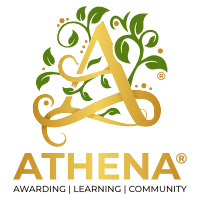Other Therapies and Practices
The Athena Herd Foundation Accredited Practitioner Register™ (“Register”) is only for Practitioners delivering Equine Facilitated Interactions (known as, for example, Equine Assisted and/or Facilitated Learning, Ground Work, Counselling, Psychotherapy, Therapy, Coaching, Teaching, Hippotherapy).
Other Accredited or Recognised Therapies
It is recognised that although the focus of The Register is Equine Facilitated Interactions, as outlined above, it also supports the capture of other accredited/registered therapies and services against a Practitioner’s individual’s registration, such as Counselling and Occupational Therapy.
These registrations will only be permitted where the Practitioner can provide copies of supporting qualifications, and proof of membership of an appropriate accredited register. These should be provided during the application process.
Practitioners should advise the Register in the event of these registrations being withdrawn or terminated for any reason.
The Register has the right to liaise, and exchange information, with those registers with respect to the registration or activity of the Practitioner when and where it is deemed appropriate. This includes situations where there might be the potential of, or proven, malpractice or maladministration and or other situations where there might have been cause to discipline, sanction or remove.
If an applicant has at any time been refused membership by, or sanctioned by, or removed from such a register this must be made clear in the application process or at any time thereafter.
Qualification Requirements for other Accredited or Recognised Therapies
Educational standards for other Accredited or Recognised Therapies are defined as those that provide the skills, knowledge and competence to work as a counsellor or psychotherapist, being a minimum level of a diploma (level 4) in allied health professions such as Occupational Therapy, Counselling or Psychotherapy, but could be a bachelor’s degree, master’s degree or doctorate.
These are usually provided by further or higher education colleges or universities. Such training should be an in-depth professional practitioner training programme, based on developing knowledge-based learning, ethical therapeutic competencies, and research awareness.
The courses should be at least one year full-time or two years’ part-time classroom-based tuition, which included integral, supervised placements of at least 100 hours.
Adjunctive Therapies
As outlined above the Register does permit the recognition of other therapies and services against a Practitioners registration but such this strictly is limited to confirmed accreditations, as defined above. Should you be qualified to offer other types of therapy, please ensure that your recognition with the Register is not linked to your practices that are not accredited Equine Facilitated Interactions, or other recognised accredited registers.
These practices are known as adjunctive therapies, and include reiki, hypnotherapy, acupuncture, massage, reflexology, aromatherapy, homeopathy, yoga etc. This is not an exhaustive list. Even where you may belong to other registers for this work, please ensure that a distinct separation is made on all public and promotional materials, including your professional website or directory listings.
When linking to the Register on your own website, you should always make it clear that your Registration with the Accredited Practitioner Register only covers your work as a Practitioner of Equine Facilitated Interactions and make every effort to ensure that a potential client is not led to believe that your adjunctive therapy is also covered.
Registrants are required to make clear the difference between the practices and modalities which they are registered with the Register for, and other adjunctive therapies.
Return to the Register’s home page.
| Version | Initials | Description | Version Date |
|---|---|---|---|
| 1 | GG | Initial Draft | April 2022 |
| 2 | GG | Reviewed | February 2023 |

